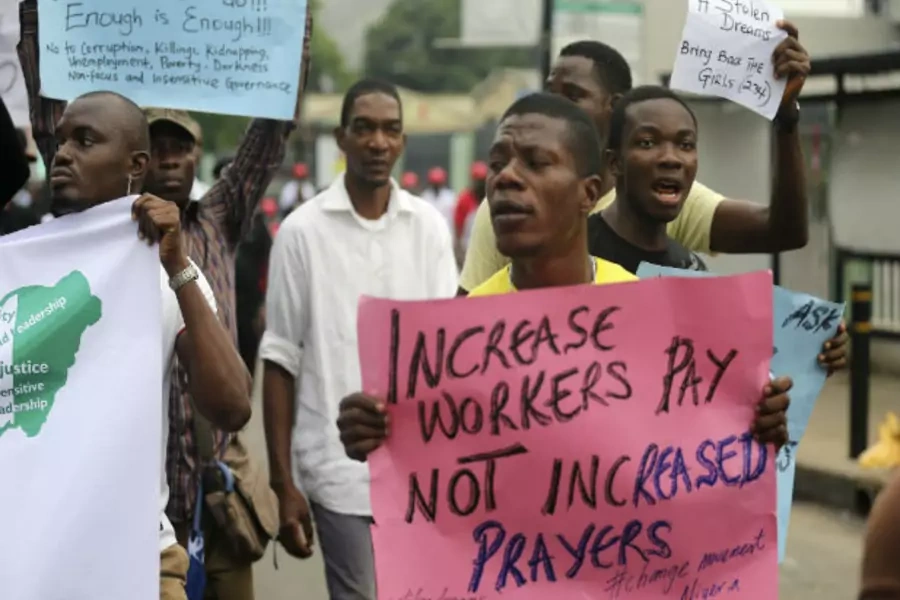More on:
A large proportion of the government of Nigeria’s revenue goes to pay the salaries of civil servants at the national, state, and local levels. With the exception of Lagos state, the heart of Nigeria’s modern economy, the states and the local government authorities have few sources of revenue of their own. They are largely dependent on revenue from the Federation Account, the share of oil revenue distributed by the federal government according to a set formula.
In normal times, oil accounts for about 70 percent of the Nigerian federal government’s revenue. But, these are not normal times. The price of a barrel of oil has fallen about 50 percent. The national budget has been recalculated at least twice to take into account falling oil prices and the resulting fall in government revenue.
Less money for the federal government means there is less to be distributed to the states and local governments through the federal account. That, in turn, may translate in to public employees not being paid. In Plateau state, in the center of the country where there is a long history of violence between herdsmen and farmers and Muslims and Christians, there are claims that public employees have not been paid for up to seven months. A special assistant to the governor denies this. He says that state salary’s have been paid up to October. Presuming the special assistant is correct, that means there are still arrearages outstanding for three or four months.
There are also anecdotal reports of Nigerian soldiers not being paid on time, and that this is contributing to the evident erosion of morale.
More on:
 Online Store
Online Store
